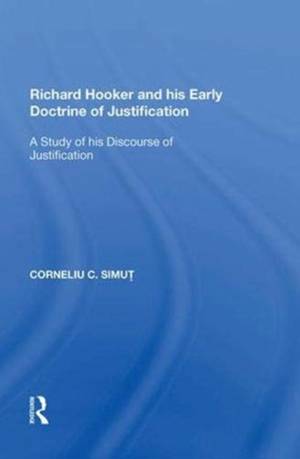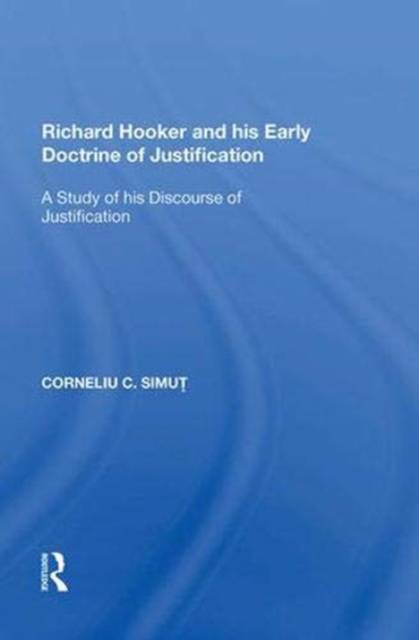
- Afhalen na 1 uur in een winkel met voorraad
- Gratis thuislevering in België vanaf € 30
- Ruim aanbod met 7 miljoen producten
- Afhalen na 1 uur in een winkel met voorraad
- Gratis thuislevering in België vanaf € 30
- Ruim aanbod met 7 miljoen producten
Zoeken
Richard Hooker and His Early Doctrine of Justification
A Study of His Discourse of Justification
Corneliu C Simut
Hardcover | Engels
€ 182,45
+ 364 punten
Omschrijving
Richard Hooker and his Early Doctrine of Justification explores the doctrine of justification, the doctrine of faith and grace, and the doctrine of Scripture and use of reason in the early theology of Richard Hooker. In order to prove that Hooker was a Protestant Reformed theologian, Simut concentrates on Hooker's doctrine of justification as reflected in his Learned Discourse of Justification, which is the most important work of his early theology. Unlike previous books on Hooker which use primarily the theology of Luther and Calvin to draw conclusions, this book brings together quotations and ideas from the works of Luther, Melanchthon, Zwingli, Bucer, Calvin and Beza to show that Hooker was a Protestant Reformed theologian. SimuÞ also discusses the theological context of Hooker's career by offering an analysis of the doctrine of justification in the theology of John Jewel, John Whitgift (Hooker's patrons), and Thomas Cartwright and Walter Travers (Hooker's Puritan opponents).
Specificaties
Betrokkenen
- Auteur(s):
- Uitgeverij:
Inhoud
- Aantal bladzijden:
- 190
- Taal:
- Engels
Eigenschappen
- Productcode (EAN):
- 9780815391531
- Verschijningsdatum:
- 28/06/2018
- Uitvoering:
- Hardcover
- Formaat:
- Genaaid
- Afmetingen:
- 192 mm x 232 mm
- Gewicht:
- 190 g

Alleen bij Standaard Boekhandel
+ 364 punten op je klantenkaart van Standaard Boekhandel
Beoordelingen
We publiceren alleen reviews die voldoen aan de voorwaarden voor reviews. Bekijk onze voorwaarden voor reviews.











